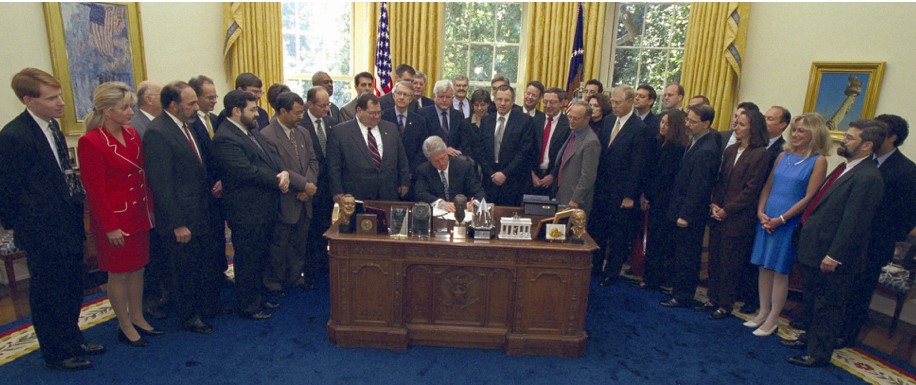
On September 22, 2000, President Bill Clinton signed the Religious Land Use and Institutionalized Persons Act (RLUIPA) into Law. The land use provisions of RLUIPA protects individuals, houses of worship, and other religious institutions from discrimination in zoning and land marking laws. Religious assemblies, especially smaller or unfamilar ones, may be illegally discriminated against on the face of zoning codes and also in the highly individualized and discretionary processes of land use regulations. Zoning codes and land marking laws may illegally exclude religious assemblies in places where they permit theaters, meeting halls, and other places where large groups of people assemble for secular purposes. Or the zoning codes or land marking may permit religious assemblies only with individualized permission from the zoning board or landmarking commissions and zoning boards or landmarking commission may use their authority in illegally discriminatory ways.
To address these concerns, RLUIPA prohibits zoning and landmarking laws that substantially burden the religious exercise of churches or other religious assemblies or institutions absent the least restrictive means of furthering a compelling governmental interest. This prohibition applies in any situation where: (i) the state or local government entity imposing the substantial burden receives federal funding; (ii) the substantial burden affects, or removal of the substantial burden would affect, interstate commerce; or (iii) the substantial burden arises from the state or local government’s formal or informal procedures for making individualized assessments of a property’s uses. In addition, RLUIPA prohibits zoning and landmarking laws that:
(1) treat churches or other religious assemblies or institutions on less than equal terms with nonreligious assemblies or institutions;
(2) discriminate against any assemblies or institutions on the basis of religion or religious denomination;
(3) totally exclude religious assemblies from a jurisdiction; or
(4) unreasonably limit religious assemblies, institutions, or structures within a jurisdiction.
The Department of Justice can investigate alleged RLUIPA violations and bring a lawsuit to enforce the statute. The Department can obtain injunctive, but not monetary relief. Individuals, houses of worship, and other religious institutions can also bring a lawsuit in federal or state court to enforce RLUIPA. Federal Religious Land Use Protections
Why is it relevant in Toms River…more to follow.